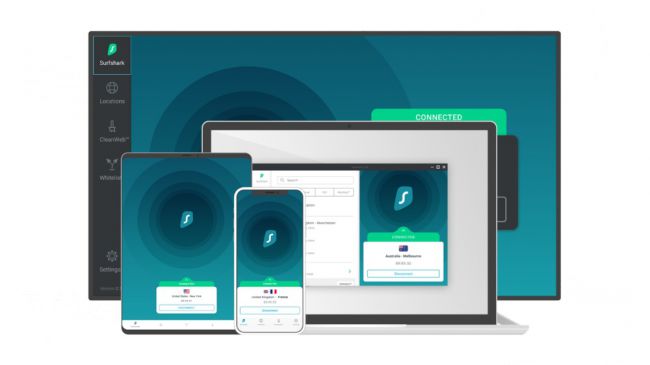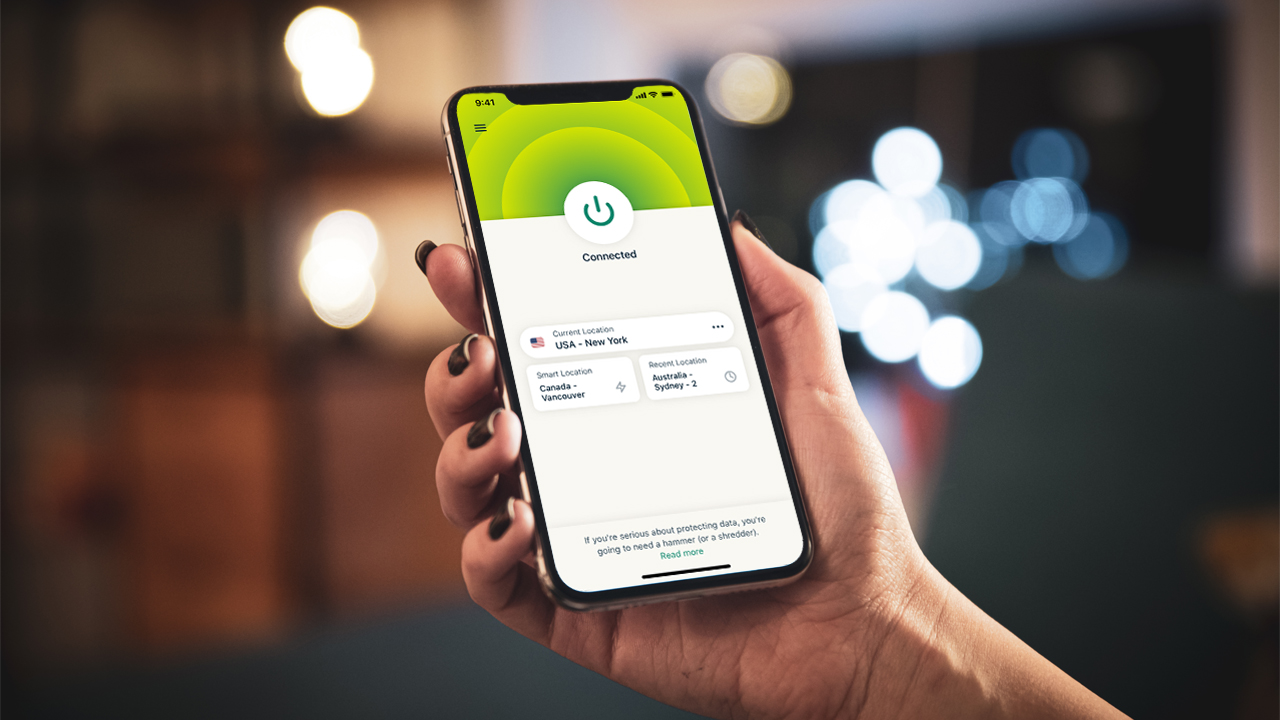ExpressVPN vs Surfshark: Which provider is best?
Both ExpressVPN and Surfshark are in the upper echelons of the best VPN services right now, and appear in just about every rundown on every website. However, when it comes down to it, which will win out in ExpressVPN vs Surfshark?
Both based in the British Virgin Islands, neither firm is subjected to 5 or 14 Eyes surveillance, and you can expect good logging practices from both thanks to this. However, that’s where the similarities end – the target markets for both are quite different, so here we’ll be testing which is best for the majority.
Before diving into the battle proper we’ll quickly run down the specs on paper. Then you can place your bets on ExpressVPN vs Surfshark before we pit the two against each other in all the areas that matter.
ExpressVPN vs Surfshark at a glance
| ExpressVPN | Surfshark | |
|---|---|---|
| Number of servers: | 3,000+ | 3,200+ |
| Server countries: | 94 | 65 |
| Maximum simultaneous connections: | 5 | Unlimited |
| Money back guarantee: | 30 days | 30 days |
| Lowest monthly cost: | $6.67 | $2.49 |

ExpressVPN vs Surfshark: Which is more affordable?
Let’s face it, price is a big factor for most people – so we’ll open up with some numbers.
ExpressVPN kicks off at $12.95 for a single month, and drops to $9.99 a month on a six-month plan – pretty average prices, and nothing to shout about. If you sign up for a 12-month plan and take advantage of the exclusive Tom’s Guide offer which will bag you three months free, you’ll be paying a pretty reasonable $6.67 a month.
If you go for a rolling monthly plan with Surfshark, you’ll be paying the same as ExpressVPN, $12.95. Commit for six months and you’ll start saving, though, as the price drops to just $6.49. The real bargains start when you commit for a year – taking the free 12 months that comes with that plan into account, the monthly price is dropped to just $2.49 a month.
Although Surfshark used to be even cheaper, it’s still a serious bargain, and as our top-rated cheap VPN there’s no way it can’t win this round. However, it’s worth noting that Surfshark’s prices do increase after the initial period, while ExpressVPN’s stay the same. It still works out better value, though.

ExpressVPN vs Surfshark: Which is faster?
Beyond price, connection speed is one of the biggest factors when choosing a VPN.
We test all our VPNs on our superfast 1Gbps US and UK connections to get a good idea of what peak performance we can expect from each service.
Express delivered speeds topping out at 580Mbps when using the LightWay protocol, which is excellent. Surfshark topped out at 475Mbps when using WireGuard, which is good, but not nearly class-leading. However, any typical user not studying the numbers would be hard-pushed to tell the difference in-use.
Using OpenVPN on the same connection, ExpressVPN topped out at an impressive 300Mbps, while Surfshark lingered at around 140Mbps. That’s a clear difference.
In truth, neither ExpressVPN nor Surfshark are market leaders when it comes to connection speeds, but if you’ve got a regular connection of around 100Mbps, both will do just fine. If you’re really looking for maximum speeds, though, ExpressVPN is the clear choice.


ExpressVPN vs Surfshark: Which is more secure?
Although Surfshark is a cheap service, it wouldn’t be as popular as it is without some serious privacy and security tools. It runs a private DNS on every one of its servers – meaning your traffic never has to go through a third party’s hands, plus a wide choice of protocols, a kill switch and MultiHop.
ExpressVPN, however, features all of these (except Multihop, which is just about the only feature not included) alongside fully audited servers and privacy & no-logging policies.
Unfortunately, a full independent audit is something Surfshark is yet to undertake – while its browser extensions have been audited by Cure53, this doesn’t give us any information about client source code, servers, or privacy policies. So, on that basis, we’re going to have pronounce Express as the more secure VPN.
- Check out which providers have the most VPN server locations
- Speed freak? You need a fast VPN
- Protect your data and your wallet with a free VPN

ExpressVPN vs Surfshark: Which is better for Netflix?
Before Netflix changed its VPN blocking tech, both services were just about flawless when it came to unblocking Netflix, featuring on our Netflix VPN, iPlayer VPN and streaming VPN guides. However, things have changed since mid-2021.
ExpressVPN struggled for a short while, but now it’s able to unblock US, UK, Canadian and Australian libraries reliably. And, if you’re having trouble, a quick message to the support team can point you in the direction of a working server.
Surfshark, however, has had a rougher time. Now, it can only access US Netflix, and even then, you may find some errors. We used the Atlanta server and had success at the time of writing, but this is liable to change.
So, right now, ExpressVPN is by far the superior VPN for use with Netflix. We hope to see improvements across the board in terms of unblocking, but currently Surfshark is struggling – along with many, many other providers.


ExpressVPN vs Surfshark: Which is better for torrenting?
One of the most popular reasons to get is VPN is for protection when torrenting, and again, both services provide great solutions.
Both providers have a kill switch (excellent if you’re planning on downloading large files and don’t want to risk a dropped connection), split tunneling to separate traffic, and good connection speeds.
However, what sets them apart is the fact that every single one of ExpressVPN’s 3,000+ servers is optimized for P2P, meaning that whichever server you choose (perhaps there’s one you that you notice consistently gives you the best speeds) will be able to be used for torrenting.
While Surfshark is a serviceable torrenting VPN and can certainly get the job done, it’s not quite as tailor-made for sharing P2P as Express. It starts off with a similar number of servers, but not every one of them is P2P compatible. While the app can automatically detect torrenting traffic and will switch you to a suitable server, this does mean you’ll have a smaller selection of servers, which might result in slower speeds.
While both do work very well, ExpressVPN is simply better suited to sharing P2P.

ExpressVPN vs Surfshark: Which has better apps?
One of the most important features of a VPN, the apps’ interfaces and ease of use can make a huge difference to the end user, and seeing as both VPNs feature on our Fire Stick VPN and Android VPN guides, both impress.
Surfshark’s desktop client and mobile apps are the epitome of simplicity, with very few options on the opening screen except for your selected server and an on/off button. That’s really useful for experts and newbies alike, as it makes getting up and running a breeze. However, Express is no different, with a simple, attractive design over every platform.
Neither skimps on features behind the scenes too much, either – and all of them are easily accessible with just a tap or two. ExpressVPN does, however, boast a few more options to play around with. For many that’s probably not a huge bonus, but for advanced users Express’s apps will prove more useful when it comes to customization.


ExpressVPN vs Surfshark: Which has better support?
ExpressVPN has long delivered the gold standard of VPN support, and that doesn’t look like changing any time soon. With a huge knowledgebase of articles plus almost instantaneous 24/7 live-chat support, there’s really nothing we can fault.
Surfshark also provides a great support service, but its help articles are a little thin on the ground compared to Express. In the vast majority of cases you’ll be able to find what you need, but Express’s depth and breadth of content really stands out.

ExpressVPN vs Surfshark: Final verdict
For all the latest Technology News Click Here
For the latest news and updates, follow us on Google News.
